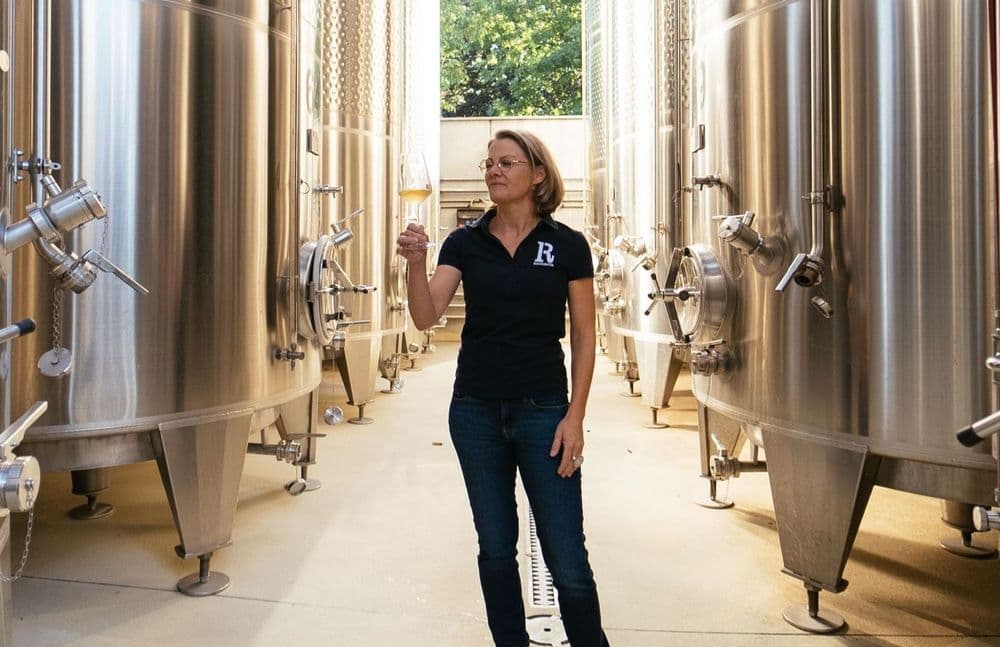A Skilled Trade with an Edge
The material from which Florian Stockinger crafts his fine blades is nearly as old as the earth itself.Being his own boss requires ambition, discipline and in Florian Stockinger’s case, a definite edge, in both senses of the word. In 2015 he established the company “Lilienstahl” and has been producing fine knives out of steel ever since. Incidentally, he was the youngest person ever to become a master blacksmith in Austria. A niche product, he calls his knives, but one with potential: “We do not have a knife culture in Austria the way they do in Germany or Japan. So, I join the best of those two traditions in my own blacksmith’s shop.”
“At just three, I was already helping my brother clean off all kinds of motors with a toothbrush. At eleven, I had my first contact with the blacksmith’s craft. It has had a hold on me ever since.”
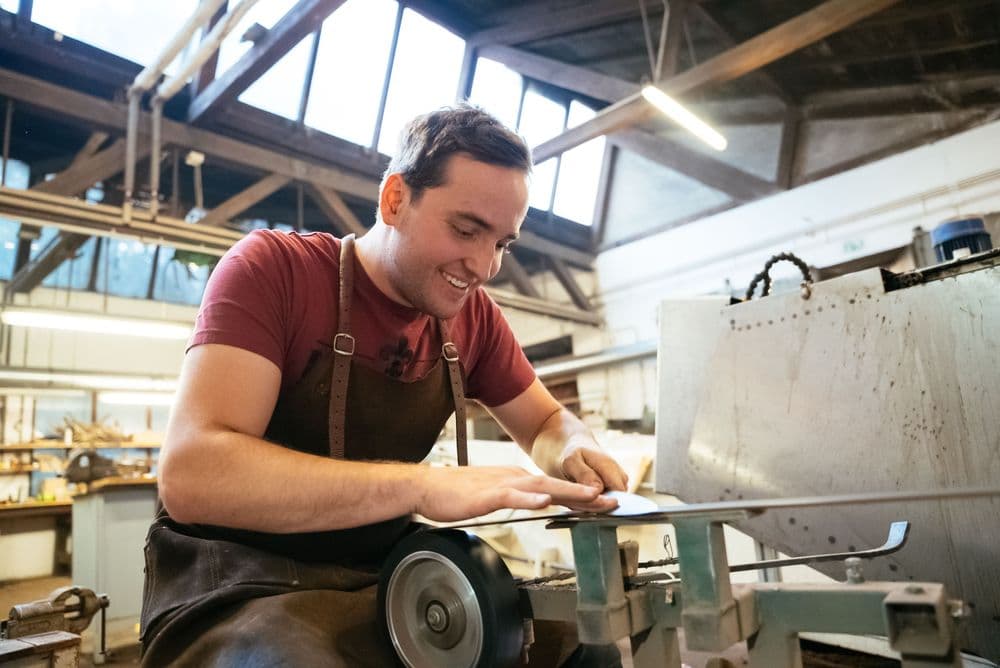
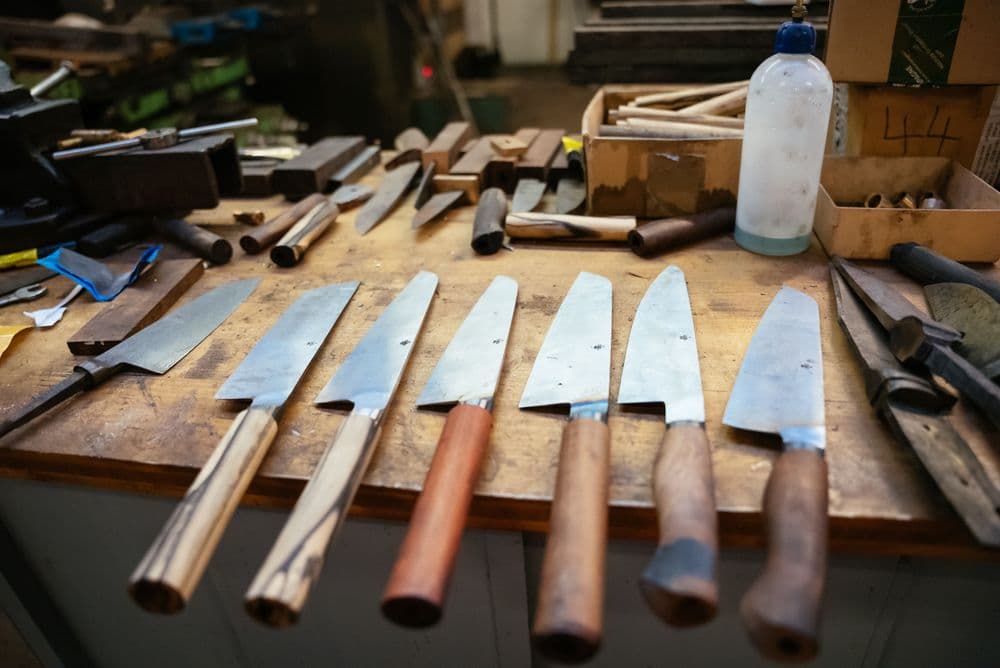
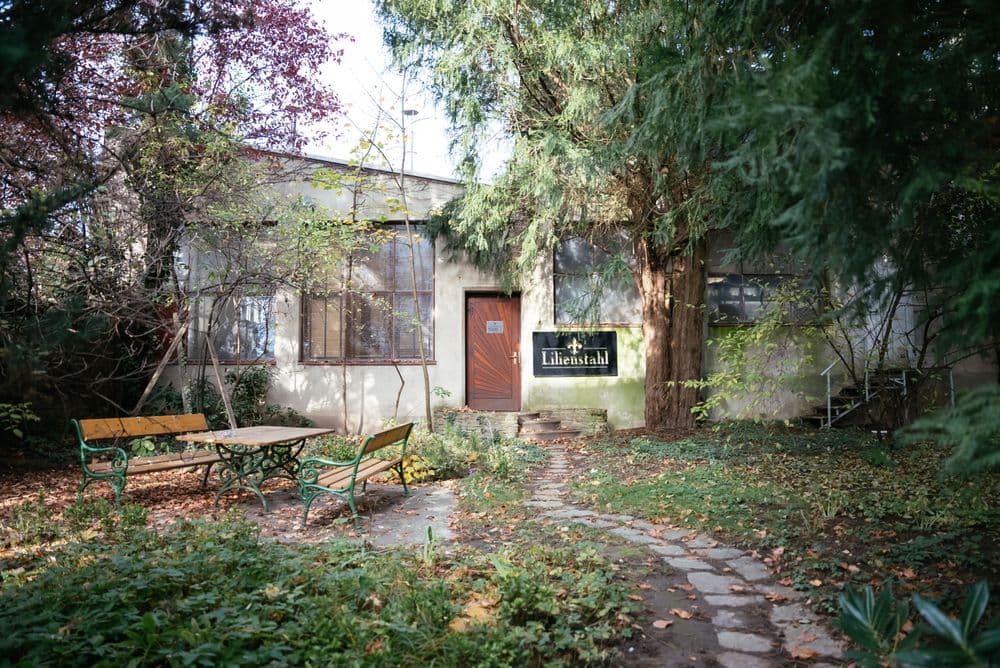
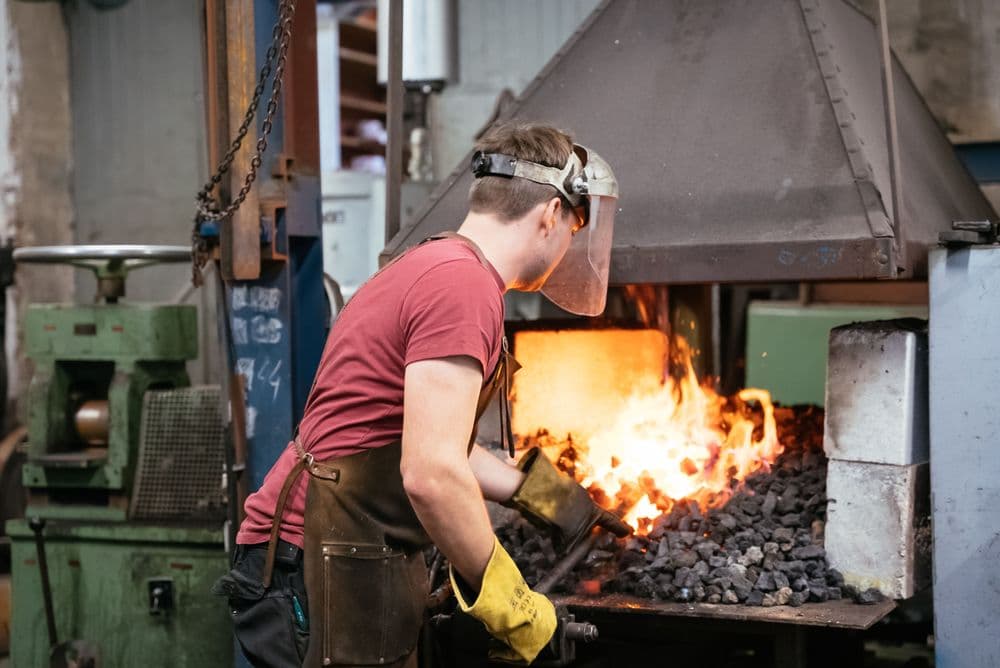
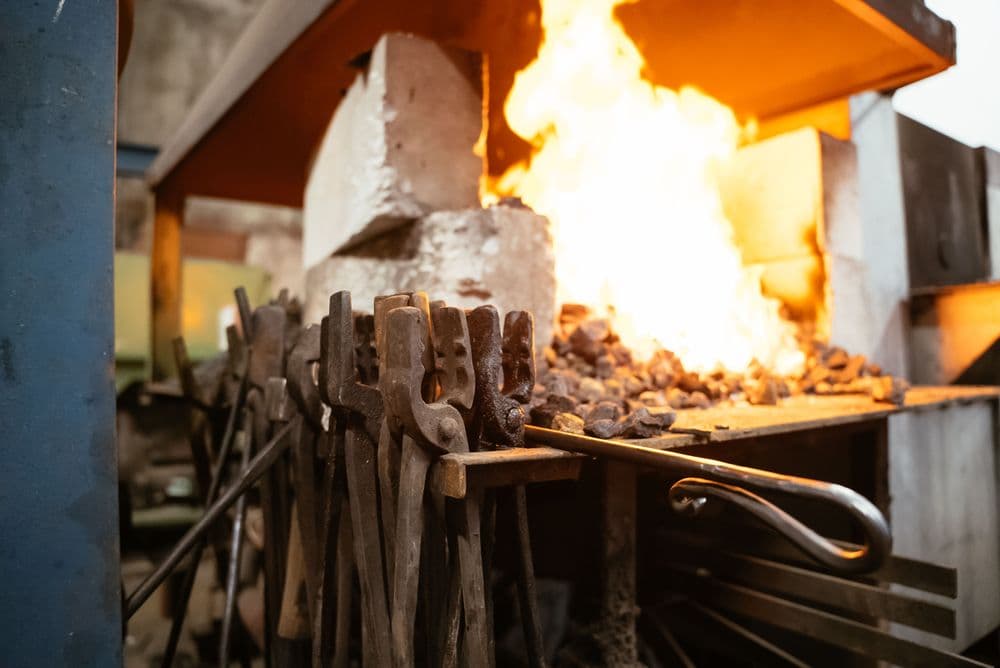
“During a lab internship, I would show my colleagues knife samples in my free time and after work. Slowly I came to realize where my real passion lies.”
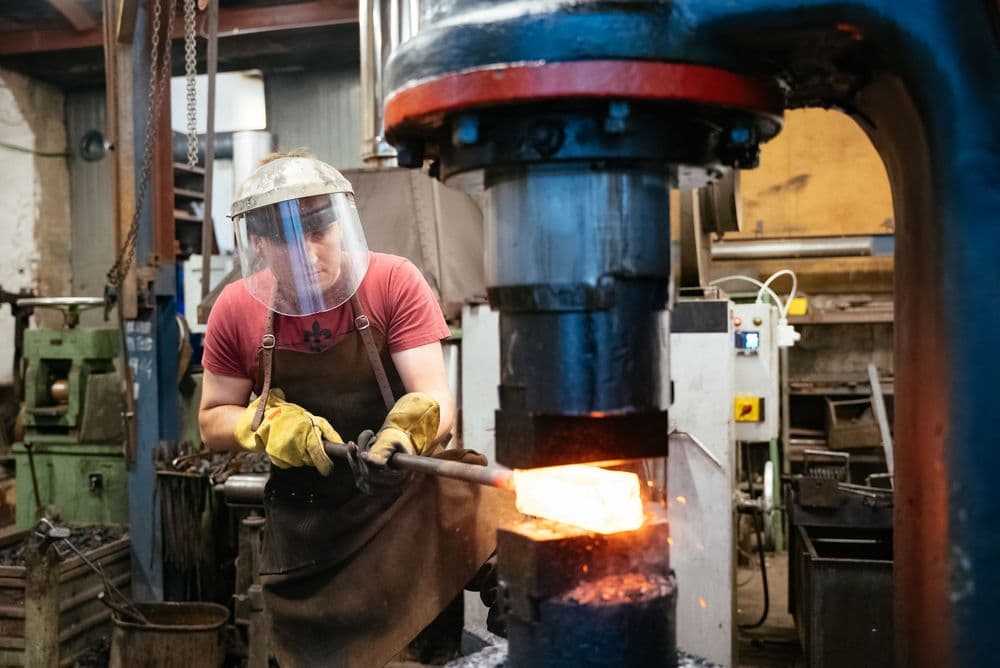
Finest Damask Steel
Manufacturing his precision knives requires full physical involvement and discipline: “The slightest grinding mistake and the material is unusable.” He goes through countless work steps before the final product emerges. “The steel is delivered straight from the mill, in sheet form and in the grade I decide on in advance. It is then trimmed to size and packed into boxes. After that, the damask from the various steels is combined, fused into a new material with hammers, pressure and heat. The fusion causes the different steels to grow into each other. Individual bars are cut and in further work steps, worked into the blade blank, which is pressed again and taken to the grinding shop to be finished. Parallel to that, I fashion a suitable handle in the woodworking shop.”
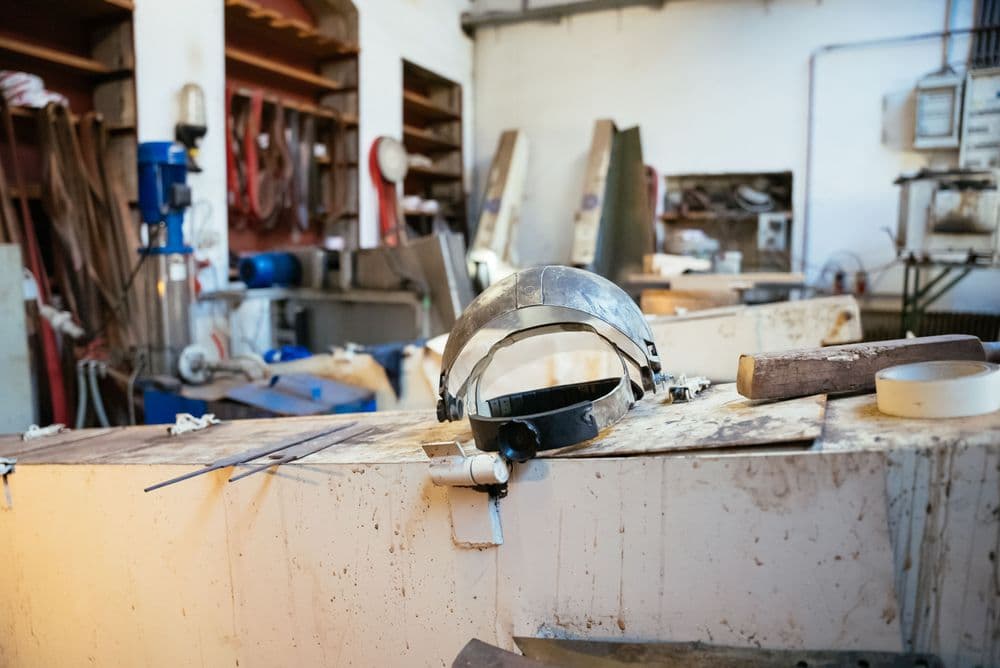
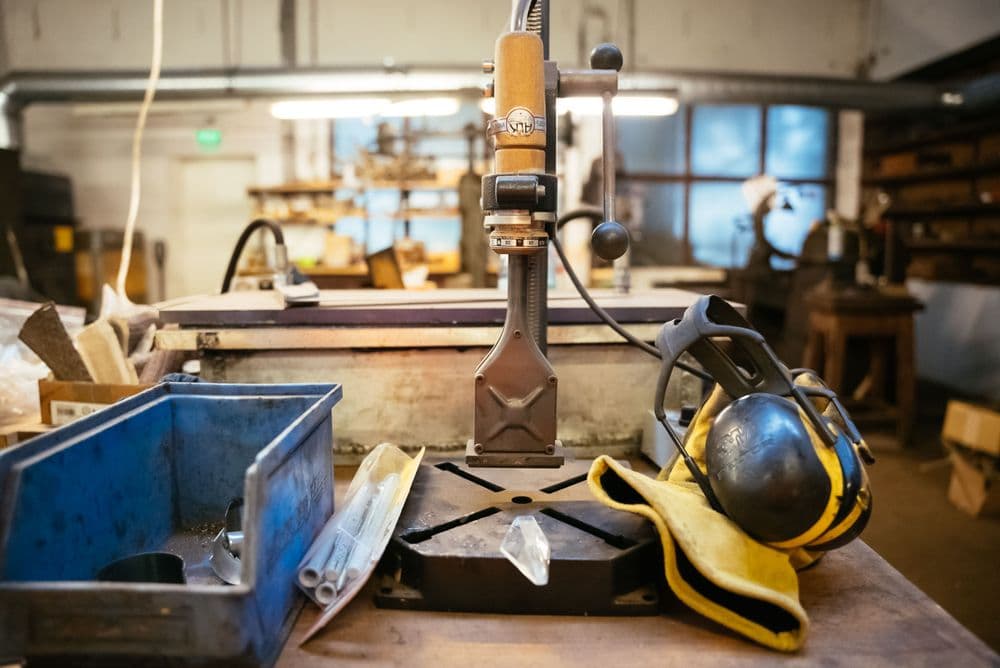
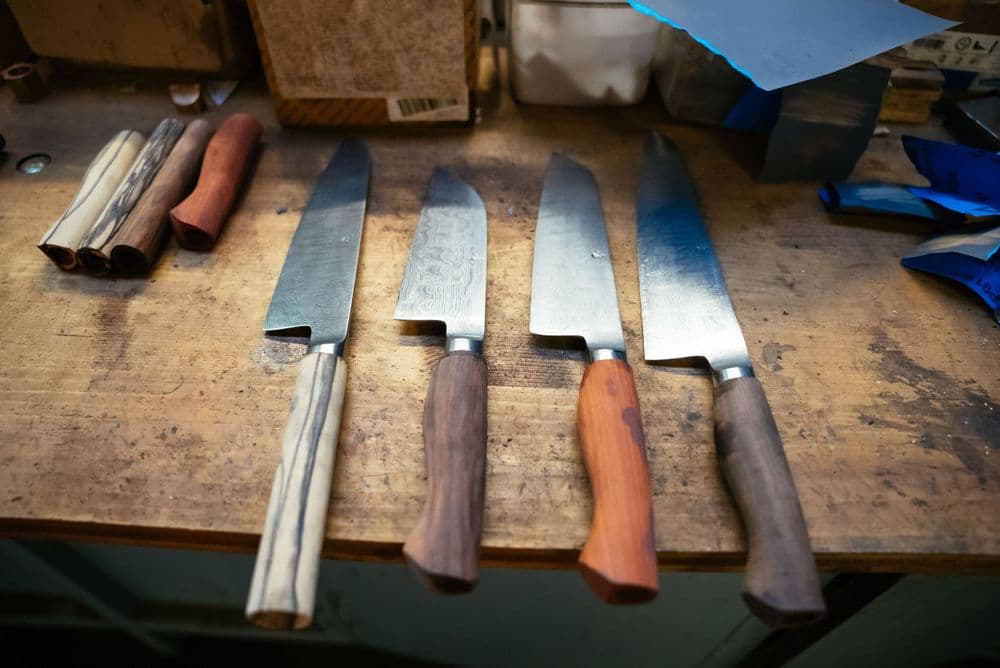
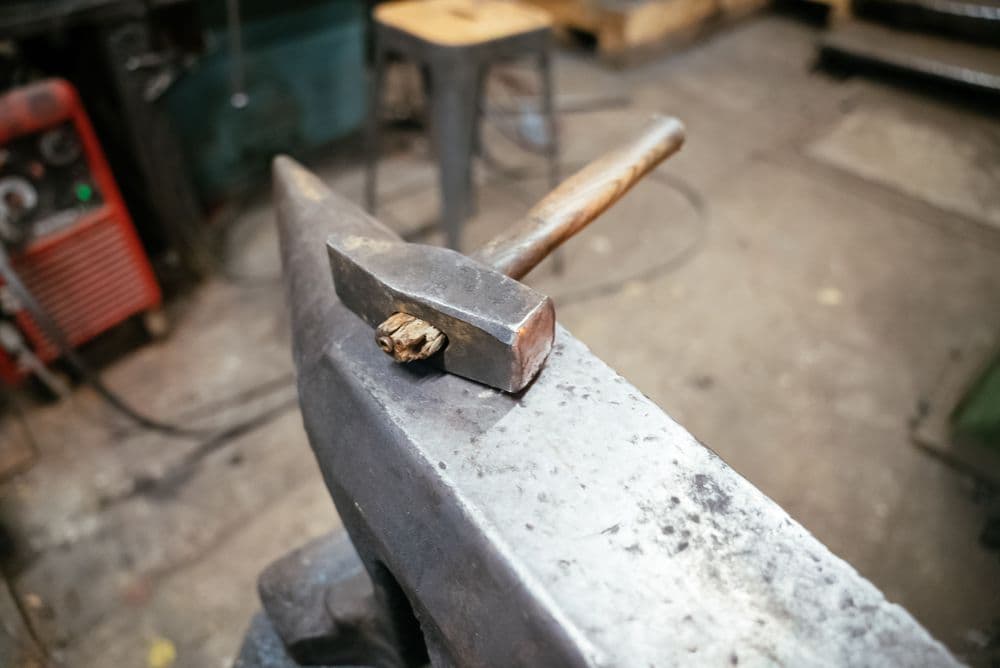
** A Long-standing Passion**
The demands placed on knives have changed immensely over the decades. “People used to need knives with thick blades to cut up entire animals, today a knife tends to be much more of a precision tool. In my work, I blend the traditions from Europe and Japan and try to derive the best from both.” The Japanese were leaders with regard to the shape of the blade and its cutting capacity, in Europe the focus was heavily on the art of integral forging, in which the entire tool was forged from a single piece of metal. The young master blacksmith already knew as a child what craft he wanted to learn. He never wanted to do anything else. “In my family we all have a technical bent. At just three, I was already helping my brother clean off all kinds of motors with a toothbrush. At eleven, I had my first contact with the blacksmith’s craft. It has had a hold on me ever since.” After initial attempts and some learning by doing, Florian sold his first knife at the age of 15. Other orders followed, and after graduating from high school, he did the master craftsman’s examination parallel to doing his stint of community service required in lieu of military service. His workshop is in the heart of the Weinviertel, a region making up the northeast part of Lower Austria. Florian found the peace and the space there that he needed to pursue his craft. After searching for over six months, he found a suitable business premises in Ernstbrunn. “Unlike Vienna, where real estate prices are sky-high, this was a place I could get a start without plunging myself into debt. Besides, work in a blacksmith’s shop requires a lot of space and I need peace and quiet to concentrate on my craft. I found all those things here. And – I have all my suppliers close at hand. I buy very little from other countries because I am firmly convinced you should keep everyday production and added value in your own state, your own region.”
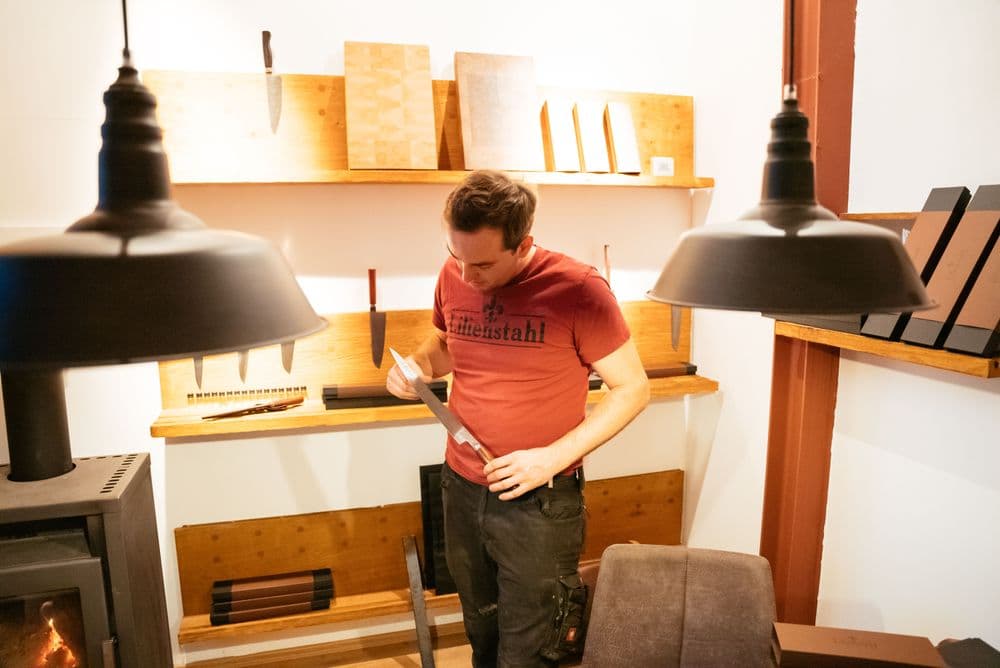
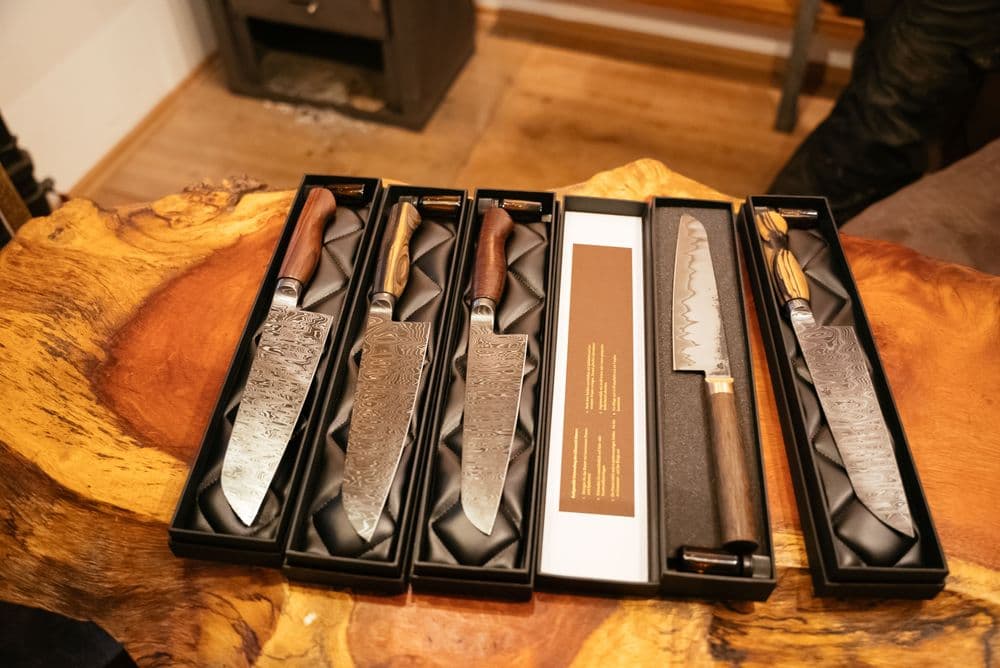
Blades for Generations
His attitude and convictions have made the business into what it is today: ambitious, successful and well-known among the best chefs in the land. Did he every think about quitting? Of course, there were moments when he had: “If you come to the point where you have no idea how you are going to pay your bills, doubts naturally start gnawing away at you. But you have to face up to obstacles like that. In the end, I am proud to have overcome these challenges, thanks also to my bank and my suppliers. It gives me fresh impetus.” And when people sometimes still ask him whether he can even make a living from his work? “I think, that is a matter of attitude nowadays.” And the feedback from customers shows me that I am on the right track.” Being an employee to someone else is a situation he finds inconceivable, anyway. “During a lab internship, I would show my colleagues knife samples in my free time and after work. Slowly I came to realize where my real passion lies.”
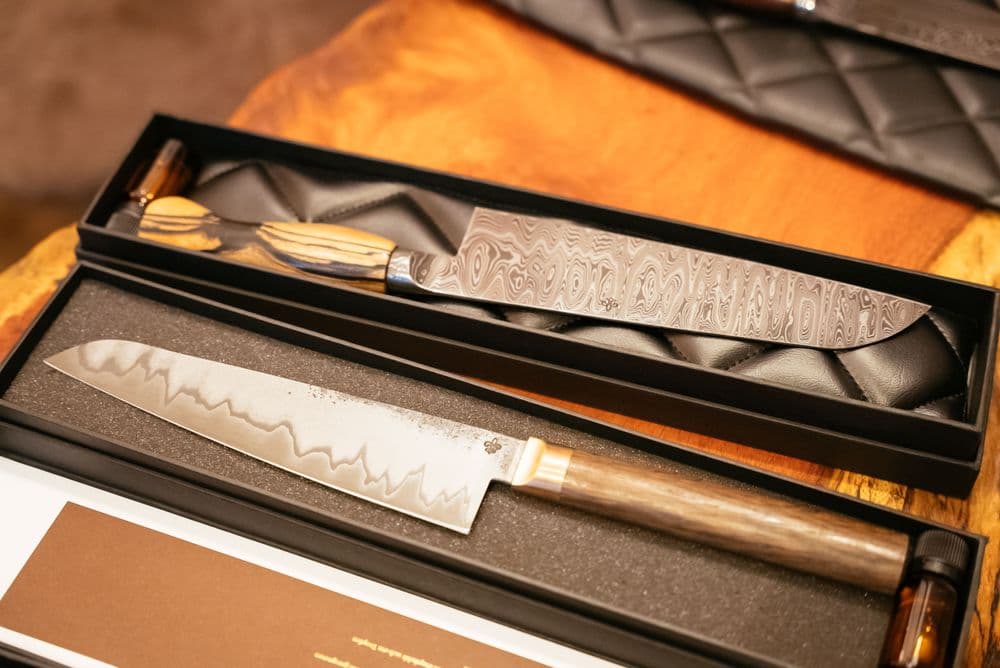
His knives are in the higher price segment, which is attributable to both the company philosophy and the excellent quality of his wares: “You cannot recycle steel forever, the product becomes worse and worse when you do that. All the blades that I produce, without exception, will maintain their durability from generation to generation and they are universal in their uses. That is what my customers demand – and what I demand of myself.”
In 2015, Florian Stockinger established his company “Lilienstahl” as the youngest master blacksmith in Austria. In Ernstbrunn in the Weinviertel, he produces classic and practical knives for use in hunting, fishing and cooking. People are welcome to stop by his showroom in person if they arrange the visit beforehand. Or they can purchase the products in an online shop. These unique hand-crafted knives forged from damask steel can be custom designed and they last for generations.
Lilienstahl on facebook
Lilienstahl on instagram
Translated by: Mark Wilch

